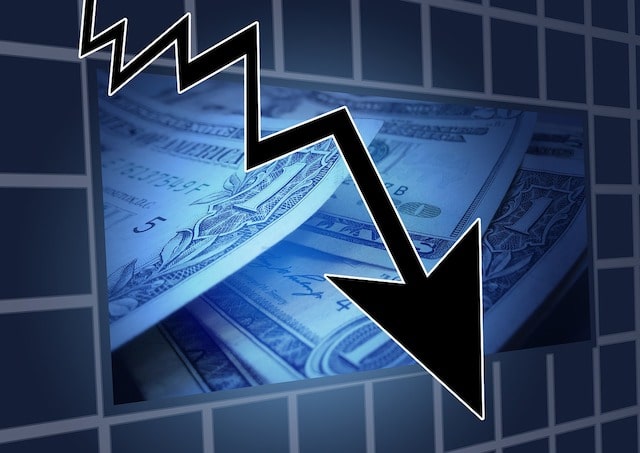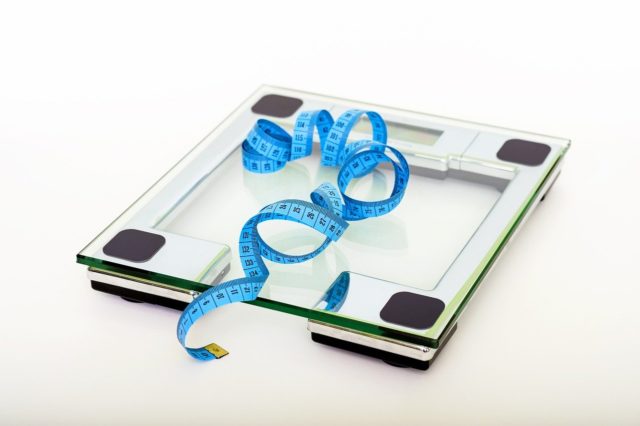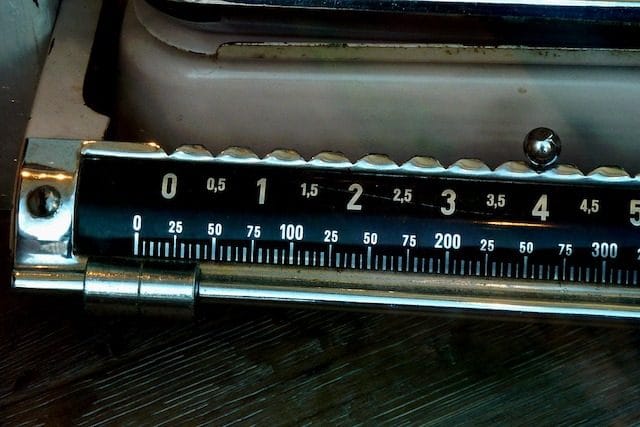The world is full of inverse correlations that we pay little attention to. Things like how the less water you consume, the hotter you feel on a summer’s day. That makes sense, and you’re not likely to wonder about it. Anything where two variables have a contrary relationship qualifies, so long as the value of one variable going up relates to the value of the other going down. Lots of times this makes sense, but sometimes this relationship can be pretty surprising.
10. The More You Need to Pee, the Less You Believe in Free Will

What’s your opinion on free will? Do you believe you are truly in control of your actions and your fate? Or do you feel events are preordained and you are on a path of destiny whether you like it or not? And also, how much do you need to pee right now?
Researchers attempting to determine what makes a person more or less inclined to believe in free will discovered a curious correlation back in 2014. Part of the survey conducted required participants to describe how they felt physically – if they were hungry, tired, or had to go to the bathroom. Those most in need of going to the bathroom were also the least likely to believe in free will.
In its way the study, which was very small and only included 81 people, does make sense. If you’re in the middle of a survey and the need to urinate keeps nagging at you, it’s not unreasonable to assume you are being forced to bend to the will of your own bladder rather than controlling your own destiny. Whether this has any profound implications for philosophy has yet to be seen.
9. The More a CEO is Paid, the Worse the Company Performs

Whenever a business CEO’s salary makes the news, it’s usually not for a good reason. Often it’s to show how preposterously overpaid people who run companies are compared to their on-the-ground employees. This has been a pretty common theme in the media for years now. But what you hear about less is whether they’re worth it. If a company is doing amazingly well, then maybe the CEO did something to earn that money, right? Maybe? Well, at least one study has shown the exact opposite is true. The more a CEO gets paid, the worse the company seems to do in the long term.
No matter what the CEO gets paid, there’s direct evidence that the company will perform more poorly, in terms of stock and accounting performance, for the following three years as that pay increases. The study looked at over 1,500 major companies over a three year period to gather empirical evidence that supports the claim. It found that the top 5% of companies, in terms of CEO salary, performed 15% worse than their peers.
Further study looked at 800 CEOs across 400 mid-size to larger US companies. They compared CEO pay to shareholder return from 2006 to 2015. The same result was detected. If a person had invested $100 in the 20% of companies with the highest paid CEOs, their investment would have returned $265 in 10 years. But if they chose the lowest paid CEO companies, they would have made $367. Not a huge difference, sure, but one that makes such a high salary for the people in charge questionable.
8. The More Expensive a Wedding Is, the More Likely You Are to Divorce

For most people who get married, the wedding itself is a big deal. Some people demand an extravagant event that pulls out all the stops. In 2020, the average cost of a wedding in America was $20,300. The median household income in America that same year was $67,521. So, people are spending a little less than a third of what they make in a year on weddings. But then you hear about those weddings that cost a fortune. Like Prince Charles and Princess Di, whose adjusted total was up around $110 million, or Brad Pitt and Jennifer Aniston, who spent $1 million, and Kim Kardashian and Kanye West, who spent nearly $3 million.
Aside from spending so much, those couples have another thing in common. Their pricey marriages didn’t guarantee happiness, and they all divorced. Turns out that’s not just a celebrity thing as research shows the more you spend on a wedding, the more likely you are to get divorced.
The same spending relationship exists with engagement rings, meaning the more expensive the ring the less likely it is that the marriage will last. You’re 1.3 times more likely to get divorced if your rings costs between $2,000 and $4,000 than if the ring is under $2,000. If your wedding costs over $20,000, you’re 1.6 times more likely to get divorced than if the wedding was under just $1,000. This is based on data from 3,000 people.
If you are getting married and want to drop cash, don’t lose hope. Couples who have really great honeymoons are actually more likely to stay together.
7. The More Agreeable You Are, the Less Money You’ll Make

You know that saying “nice guys finish last?” It’s usually reserved for talking about romance, but it can really apply to any situation in which someone can take a nice and kind approach versus a more aggressive and maybe unscrupulous one. And, in business, it turns out it’s tragically true. The more agreeable you are as a person, the less money you’re going to make. If you’re a guy, anyway.
Research has shown that men who are agreeable make less money, while this has no effect on a woman’s earning potential. This isn’t a good thing for women, mind you. It just means they have no advantages either way, where a man has the advantage if he’s perceived as disagreeable. A disagreeable man is perceived as tough, and a good negotiator, and so on.
So what does agreeable mean? Being compassionate, helpful, friendly. You know, the things you want to show others or experience from them. You’ll make less money and get fewer promotions, too.
6. Kids Who Start School Earlier in the Day Weigh More

Numerous school boards have toyed with plans to change school start times over the years. For many the thinking was that it might relieve traffic congestion if kids were not going to school while adults were all going to work. Maybe it cuts down on accidents, pollution, all kinds of things. But there has been another side effect of changing start times. Turns out, the earlier a kid goes to school the more they weigh.
When kids get less sleep, they eat more high fat foods, apparently. For every additional hour of sleep a teen gets, they’re 21% less likely to eat high calories from snacks during the day. These students were more likely to be eating between 5 a.m. and 7 a.m. which would then lead to “metabolic stress” and dysfunction.
5. The More People Die in any Situation the Less People Care

A lot of people consider themselves compassionate and empathetic, and that’s great. You need to care about others if you want to make the world a better place, one could argue. But you can also argue that this compassion has limits, and it’s backed by science. For instance, in any given tragedy, the greater the number of victims, the less people will actually care. Sounds absolutely counterintuitive, but it’s how our brains work.
Massive casualties can result from wars, natural disasters and, of course, a pandemic like Covid-19. But people are quick to get fed up with the news of such things. Our capacity for sympathy can hit a wall. It’s called psychic numbing.
Large numbers are not able to trigger an emotional response in people. At some point a big number is beyond our ability to comprehend. Think of those games where you need to guess how many jelly beans are in a jar. People guess wildly wrong numbers because they start to lose meaning at a certain point. Sadly, jelly beans and deaths are in the same boat as a result.
4. The More You Swear the Less Pain You Feel

Are you fond of vulgarities? You should be. Turns out swearing is a panacea that can cure what ails you, providing what ails you is only a minor discomfort. The more you swear the less pain you’re going to feel. This will be helpful the next time you stub your toe and are moved to drop an F-bomb.
Over 90 people were told to immerse their hands in ice water. They held it there until they began to feel pain from the cold. That was their pain threshold. In subsequent tests, the participants were asked to do it again, only this time let loose some test words. One was the F-word and others were made up swear words like “twizpipe.”
Only those who belted out the F-word were able to handle the pain longer, indicating it offered a pain relieving effect. The more they swore, the more pain they could endure.
3. As Your Weight Increases Your Sense of Smell Decreases

Obesity is considered an epidemic these days, and many people struggle with their weight. The causes are diverse and factor in everything from sedentary lifestyles to the types of foods that we all eat, and so on. And it turns out that your propensity for suffering from obesity is related to your sense of smell. The worse your sense of smell, the more likely you are to be obese.
Interestingly, this isn’t the causal effect you may assume from how it’s presented. People don’t become obese because they can’t smell. In fact, it’s the opposite. They lose the sense of smell as they become obese. We know this because bariatric surgery has been shown to restore an improved sense of smell as weight is lost.
2. Pasta Cooking Time is Inversely Proportional to Stick Length

How do you know when your pasta is done? A skilled chef can ace this every time but around a third of people surveyed claim they struggle to make pasta, and the internet is awash in articles that will tell you all the ways you’re doing it wrong. Lucky for those who don’t know their agnolotti from their bucatini there’s a scientific way to determine pasta doneness, and it’s all related to the inverse relationship with the pasta’s cook time and how close it is to another piece of pasta before the two stick together.
Researchers studied the physics of what happens when cooking pasta and determined that, as pasta cooks, the stick length decreases. Stick length is the “distance of where two noodles stick together after you dip them in and out of the water.” This is proportional to cook time. And that means, regardless of how you prepare your pasta or how long it’s been cooking (which can be an imprecise way to measure doneness), all you really need is a ruler. And some understanding of how you like your pasta done.
If you’re an al dente fan, your ideal stick length is 30 millimeters. For softer pasta, you want 18 millimeters.
1. Spock’s Confidence on Star Trek was Inversely Proportional to his Accuracy

If arbitrary internet lists are to be believed, Mr. Spock is the greatest character in Star Trek history, a franchise that has been going strong across seven different decades now. Trek creator Gene Roddenberry once said Mr. Spock, who is half human and half Vulcan, was central to the themes of the show. Specifically, he meant themes of tolerance and humanity’s ability to grow and mature. He follows the path of logic, as do all Vulcans, and is depicted as being the smartest member of the original series crew, able to do multiple complex calculations off the top of his head.
Despite the fact that the audience is told very often how intelligent Spock is and how logical his species are, the show doesn’t bear that out. Writer Julia Galef watched every episode of Trek and film featuring Spock, then tabulated how often he made a prediction and how often that prediction came true. The data shows the more confident Spock was in an outcome, the more likely he was to be wrong. In fact, 83% of the time when Spock called something impossible, he was proven incorrect. That’s a terrible track record. On the flip side, the more confident he was that something would definitely happen, the more likely it was to not happen at all.
Obviously this is all a narrative tool for the show, which was attempting to show that human emotion and intuition win out over cold, alien logic, but you’d think they’d at least give him a 50/50 success rate for being half human.